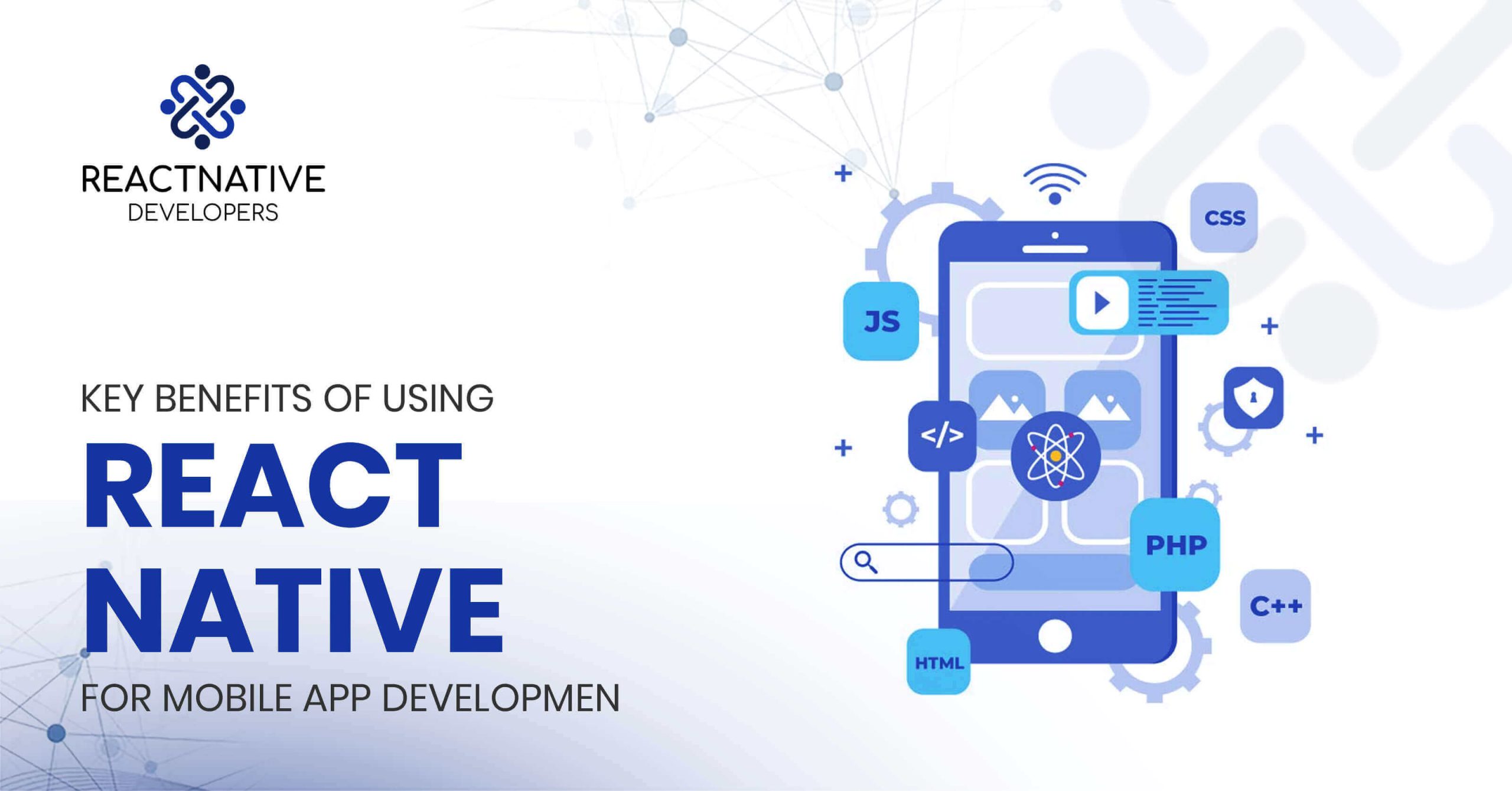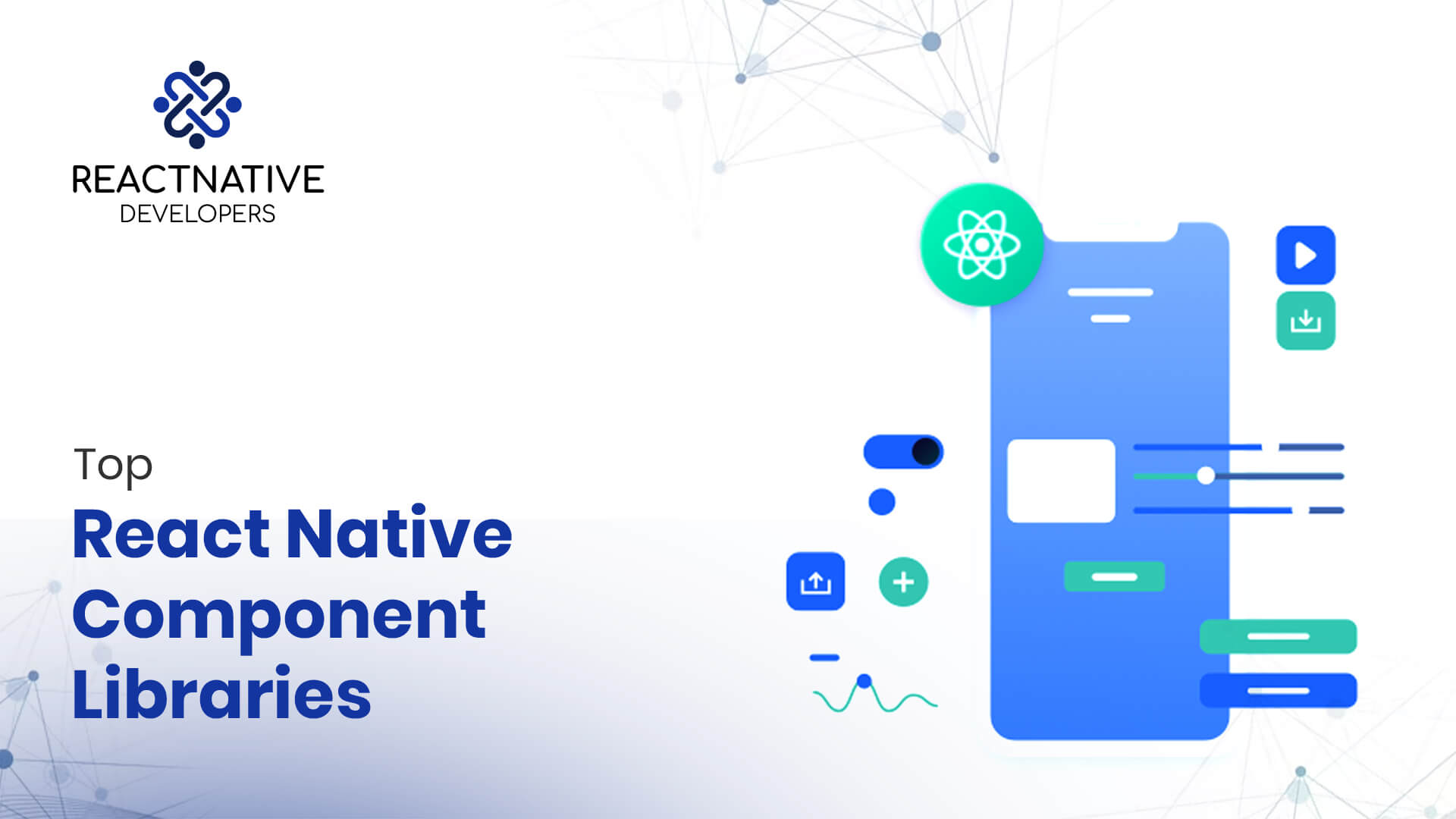In the ever-evolving landscape of mobile app development, choosing the right framework is crucial for delivering high-quality applications efficiently. React Native, a popular open-source framework developed by Facebook has become a game-changer for developers looking to create cross-platform mobile apps. This blog post explores the key benefits of using React Native for mobile app development, highlighting why it has become a preferred choice for many development teams worldwide.
1. Cross-Platform Development
One of the most significant advantages of React Native is its ability to facilitate cross-platform development. With React Native, developers can write code once and deploy it on both iOS and Android platforms. This not only saves time and effort but also ensures consistency in the user experience across different devices. By reusing code, development teams can accelerate the app development process and reduce costs associated with maintaining separate codebases for each platform.
2. Native Performance
React Native bridges the gap between web and mobile app development by allowing developers to build apps using JavaScript and React, while still delivering near-native performance. Unlike traditional hybrid frameworks, React Native compiles to native code, providing a smooth and responsive user experience. The framework uses native components and APIs, ensuring that apps built with React Native perform just as well as those developed using native languages like Swift or Java.
3. Hot Reloading
Hot reloading is a standout feature of React Native that significantly enhances developer productivity. With hot reloading, developers can see the results of code changes instantly, without having to rebuild the entire app. This real-time feedback loop allows for faster iteration and debugging, enabling developers to refine their apps more efficiently. As a result, the development cycle is shortened, and the time to market is reduced.
4. Strong Community Support
React Native boasts a vibrant and active community of developers, contributors, and enthusiasts. This strong community support translates into a wealth of resources, libraries, and tools that can help developers overcome challenges and implement advanced features. The community-driven nature of React Native ensures continuous improvement and innovation, making it easier for developers to stay up-to-date with the latest trends and best practices in mobile app development.
5. Rich Ecosystem and Third-Party Plugins
The React Native ecosystem is rich with third-party plugins and libraries that can extend the functionality of your app. Whether you need to integrate with native device features like the camera or GPS, or add complex functionalities like push notifications or analytics, there’s likely a React Native library available to meet your needs. These pre-built components save development time and effort, allowing developers to focus on building unique features and enhancing the user experience.
6. Ease of Maintenance
Maintaining and updating mobile applications can be a daunting task, especially when dealing with multiple platforms. React Native simplifies this process by enabling code reuse and providing a single codebase for both iOS and Android. Updates and bug fixes can be applied simultaneously across platforms, ensuring that your app remains consistent and up-to-date. This ease of maintenance not only reduces the workload for developers but also ensures a better user experience for end-users.
7. Cost-Effectiveness
Developing separate apps for iOS and Android can be expensive and time-consuming. React Native offers a cost-effective solution by allowing developers to create cross-platform apps with a single codebase. This reduces development costs and speeds up the time to market. Additionally, the ability to leverage existing skills in JavaScript and React means that companies can utilize their existing development teams, further reducing costs associated with hiring specialized native developers.
8. Future-Proof Development
React Native’s commitment to backward compatibility and regular updates ensures that your app can adapt to future changes in mobile platforms. The framework is actively maintained by Facebook and the developer community, with continuous improvements and new features being added. This future-proof approach means that investing in React Native today will continue to yield benefits as the mobile landscape evolves.
9. User Experience and Interface
React Native enables developers to create rich, interactive user interfaces that enhance the user experience. The framework’s ability to use native components ensures that the app’s look and feel are consistent with the platform’s native applications. This native-like experience can lead to higher user satisfaction and retention rates, as users find the app intuitive and responsive.
10. Developer Experience
The development experience with React Native is highly positive due to its modern programming practices and tools. The use of JavaScript and the React paradigm, along with TypeScript support, makes the code more readable, maintainable, and scalable. Developers can leverage the vast React ecosystem, including Redux for state management, making complex app development more straightforward and efficient.
11. Large Scale Adoption and Real-World Use Cases
Many renowned companies and applications have adopted React Native for their mobile app development needs. Companies like Facebook, Instagram, Airbnb, and Walmart have successfully utilized React Native to create high-performing, scalable applications. These real-world use cases demonstrate the framework’s reliability and capability to handle large-scale applications.
12. Third-Party Plugin Compatibility
React Native’s architecture allows for seamless integration with third-party plugins, enabling developers to enhance app functionality effortlessly. Whether it’s integrating Google Maps for location services or using Stripe for payment processing, React Native makes it straightforward to incorporate external services, providing a robust, feature-rich app.
Conclusion
React Native offers a compelling solution for mobile app development, combining the best of both worlds: the efficiency and flexibility of web development with the performance and user experience of native apps. Its cross-platform capabilities, strong community support, rich ecosystem, and cost-effectiveness make it an ideal choice for businesses and developers looking to create high-quality mobile applications. By leveraging the key benefits of React Native, development teams can accelerate their projects, reduce costs, and deliver exceptional user experiences across iOS and Android devices. Whether you’re a startup or an established enterprise, React Native provides the tools and capabilities to bring your mobile app vision to life.
FAQ
1. What is React Native used for?
React Native is used for developing mobile applications that can run on both iOS and Android platforms using a single codebase. It allows developers to use JavaScript and React to build native mobile apps.
2. How does React Native improve performance?
React Native improves performance by compiling JavaScript code to native code, using native components and APIs. This approach ensures that the apps perform similarly to those built with native languages like Swift or Java.
3. Can React Native be used for large-scale applications?
Yes, React Native is suitable for large-scale applications. Many major companies, such as Facebook, Instagram, and Airbnb, have successfully used React Native to develop and maintain their large-scale applications.
4. How does React Native handle updates and maintenance?
React Native simplifies updates and maintenance by allowing developers to apply changes to a single codebase that works across both iOS and Android platforms. This unified approach reduces the complexity and effort involved in maintaining separate codebases for different platforms.
5. What are the key benefits of using React Native over other frameworks?
The key benefits of using React Native include cross-platform development, native performance, hot reloading, strong community support, a rich ecosystem of third-party plugins, ease of maintenance, cost-effectiveness, and future-proof development. These advantages make React Native a preferred choice for modern mobile app development.



